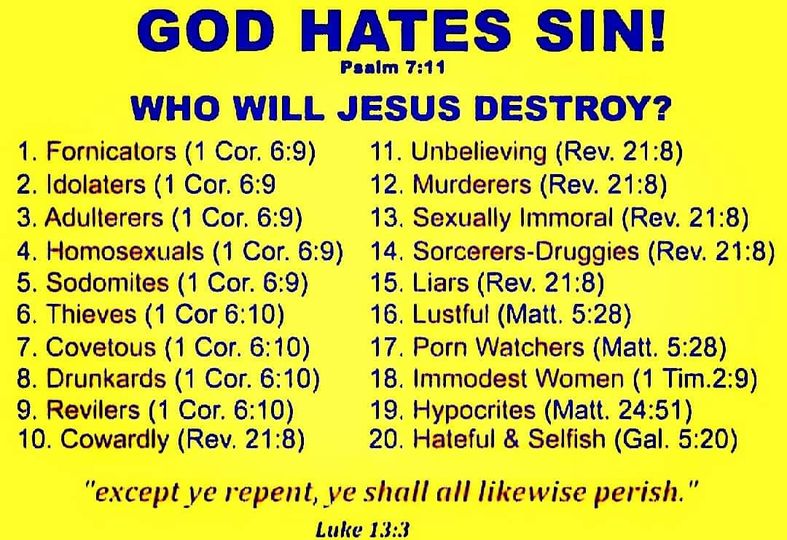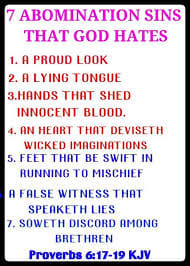Let us make it clear from the very beginning that the established religious system, which manifests itself in the abomination called "church", is NOT of God. We intend to make it very clear, by studying the Greek words found in the New Testament, that the pattern which God intends His people to follow and live by is the ECCLESIA system, and is RADICALLY different from that which calls itself "church" in our day. As you read this short study, the truth will dawn on you that Christians today have been fed a LIE, and that they have been enslaved by the religious systems of men.
If you truly love Jesus and desire to follow Him in total obedience, then you must seriously consider the facts that follow. We encourage each and every person who names the name of Christ to PRAY, FAST, AND SEEK GOD concerning the important differences between how the first Christians lived and how Christians live today.
THE CORRECT MEANING OF "CHURCH"
(The following information is from ACMTC Library and BenWilliamsLibrary.com)
Let's start by defining the word. "Church" comes from the Old English and German word pronounced "kirche." In Scotland, it was "kirk."
The following entries are from the Oxford Universal English Dictionary:
Church [Old English cirice, circe; Middle English chereche, chiriche, chirche; whence churche, cherche, etc.: -Greek Kuriakon...]
Kirk The Northern English and Scottish form of CHURCH, in all its senses.
In the earlier Greek, it was pronounced "ku-ri-a-kos" or "ku-ri-a-kon." As you can see, this word doesn't even resemble the Greek word "ecclesia" whose place it has usurped.

The meaning of "Ku-ri-a-kos" is understood by its root: "Ku-ri-os," which means "lord." Thus, "kuriakos" (i.e., "church") means "pertaining to the lord." It refers to something that pertains to, or belongs to, a lord. The Greek "kuriakos" eventually came to be used in Old English form as "cirice" (Kee-ree-ke), then "churche" (kerke), and eventually "church" in its traditional pronunciation. A church, then, is correctly something that "pertains to, or belongs to, a lord."
Now, as you can see, there is a major problem here. The translators broke the rules in a big way. When they inserted the word "church" in the English versions, they were not translating the Greek word "kuriakos," as one might expect. Rather, they were substituting an entirely different Greek word.
This was not honest! The word "church" would have been an acceptable translation for the Greek word "kuriakos." However, not by the wildest imagination of the most liberal translator can it ever be an acceptable translation for the Greek word "ecclesia." Are you following this? Consider it carefully. This truth will answer many questions you've had about churches, and the kingdom.
"Ecclesia" is an entirely different word with an entirely different meaning than "kuriakos." In fact, the Greek word "kuriakos" appears in the New Testament only twice. It is found once in I Corinthians 11:20 where it refers to "the Lord's supper," and once again in Revelation 1:10 where it refers to "the Lord's day." In both of those cases, it is translated "the Lord's..." - not "church."
This word does not appear again in the New Testament. Nonetheless, this is the unlikely and strange history of the word "church" as it came to the English language. Eventually, through the manipulation of organized religion, "church" came to replace "ecclesia" by popular acceptance. Again, we must emphasize the importance of knowing word meanings in order to know the intent of those who wrote the Scriptures.
THE CORRECT MEANING OF "ECCLESIA"

Now, let's look at the word, "ecclesia." This Greek word appears in the New Testament approximately 115 times. That's just in this one grammatical form. It appears also in other forms. And in every instance, except three, it is wrongly translated as "church" in the King James Version. Those three exceptions are found in Acts 19:32, 39, 41. In these instances, the translators rendered it "assembly" instead of "church." But, the Greek word is exactly the same as the other 112 entries where it was changed to "church" wrongly.
In Acts 19, "ecclesia" is a town council: a civil body in Ephesus.
Thus, the translators were forced to abandon their fake translation in these three instances. Nonetheless, 112 times they changed it to "church." This fact has been covered up under centuries of misuse and ignorance. The Greek word "ecclesia" is correctly defined as: "The called-out (ones)" [ECC = out; KALEO = call]. Thus, you can see how this word was used to indicate a civil body of select (called, elected) people.
According to the Encyclopedia Britannica:
In the New Testament, "ecclesia" (signifying convocation) is the only single word used for church. It (ecclesia) was the name given to the governmental assembly of the city of Athens, duly convoked (called out) by proper officers and possessing all political power including even juridical functions.
Obviously, in Greece, an ecclesia had no resemblance to a church. An "ecclesia" was a civil assembly in Athens even before the writing of the New Testament. In the Oxford Universal English Dictionary (considered the standard for the English language), the word "ecclesia" is listed in its English form as used by our English forefathers. (Nowadays, only forms of the word appear - like, "ecclesiastical.")
Quoting from the Oxford Universal English Dictionary on the word "ecclesia":
Ecclesia [mediaeval Latin, and Greek - from : SUMMONED] -A regularly convoked assembly, especially the general assembly of Athenians. Later, the regular word for church.
Thus, two of the most prestigious word resources in the English language confirm the fact that an "ecclesia" was originally a select civil body, summoned or convoked for a particular purpose. What, then, did the writers of the New Testament mean when they used the word "ecclesia" to describe a Christian body of people? We can assume that they intended to convey the original Greek meaning of the word:
a body of Christians called out of the Roman and Judean system to come together into a separate civil community. It meant a politically autonomous body of Christians under no king but Jesus; under no other jurisdiction but that of Jesus.

No man ruled them! Only Christ. And that was the reason these same Christians ran into trouble with kings and rulers; were arrested, crucified, and martyred. They dropped Caesar as their King and took up Christ.
In Acts 17, verses 1-6, we see that Paul and Silas had a reputation that preceded them. They were "turning the world (system) upside down." What was their inflaming message? Were they telling the people to find a minister and support him; go to church every weekend; be nice to their neighbors? Could this have been the message that set the city fathers against them? Or maybe they were asking people to send their tithes to them so they could build a nice church or develop a Christian recreation center? No? What then?
What were these guys doing that was "turning the world system upside down"? The answer is found in verse 7:
"Whom Jason hath received (into his house): and these all do contrary to the decrees of Caesar, saying that there is another king, one Jesus."
Now is that clear? Do you see what they were doing? They were announcing ANOTHER KING! Not Caesar! This was a king who was bigger than Caesar. They were forming civil bodies that no longer looked to Caesar as their king.
They were forming civil outposts for Christ's conquering army! They were at war!
Paul and Silas weren't "church builders" like preachers today claim. They weren't proselytizing people from one church or synagogue to another. They were kingdom builders!
They were dethroning rulers in the minds of the people and alienating them from the mental hold Caesar had upon them through heathenistic (central) government.
They were teaching the principles of Christian government. They were putting forth the call of God to whomever would hear and obey, and those whose hearts responded to the call became citizens of Christ's kingdom and joined themselves to the ecclesia, or community of believers













